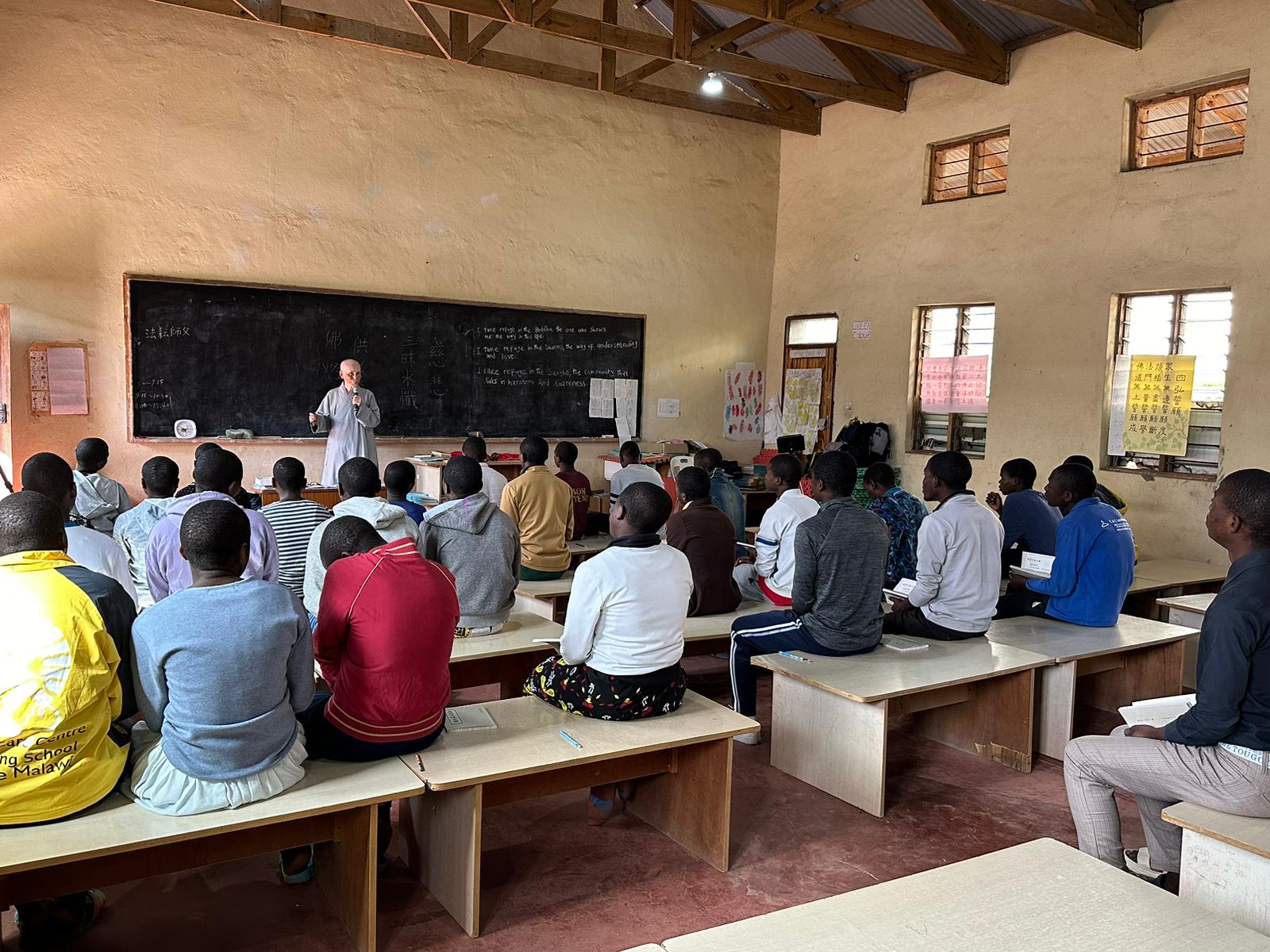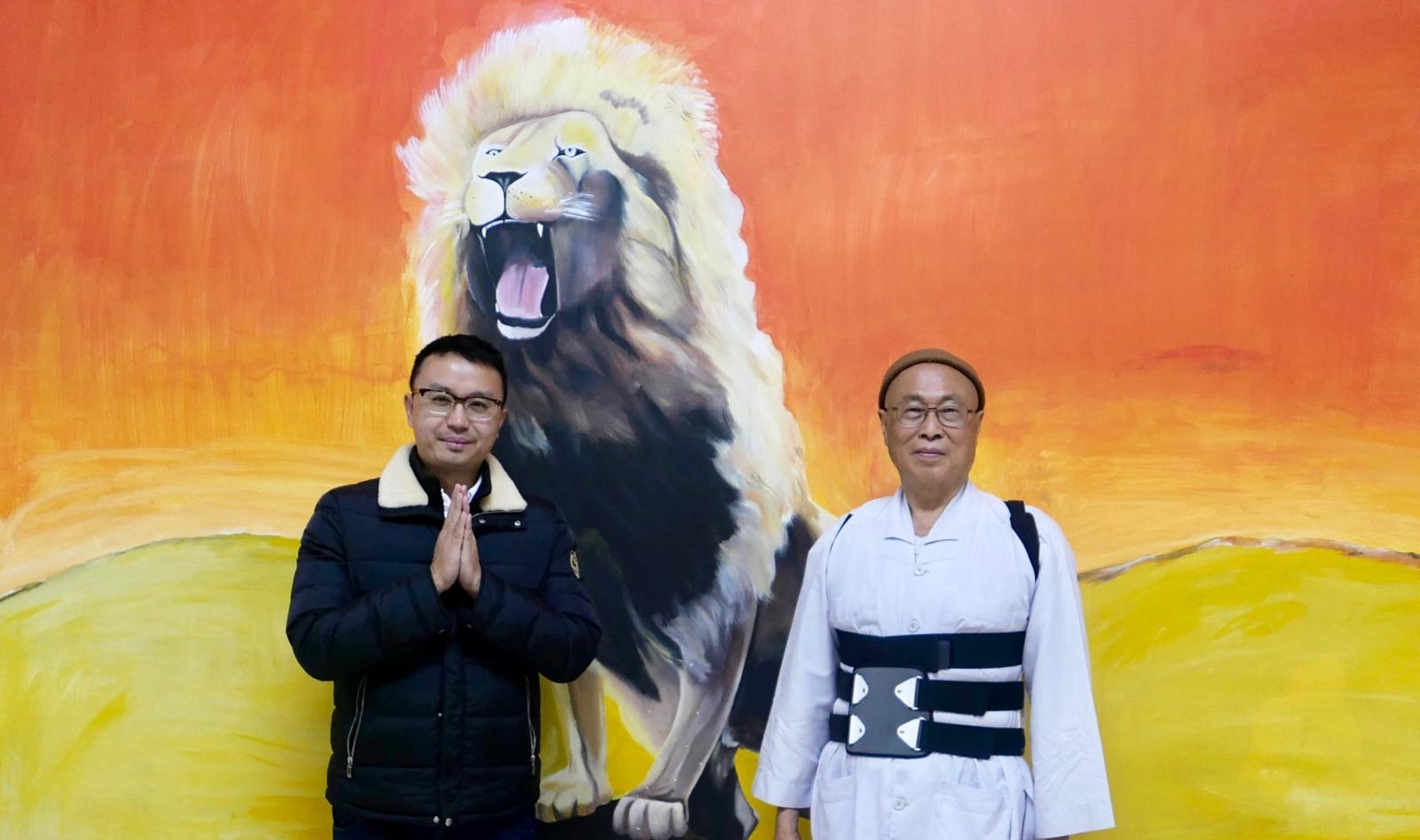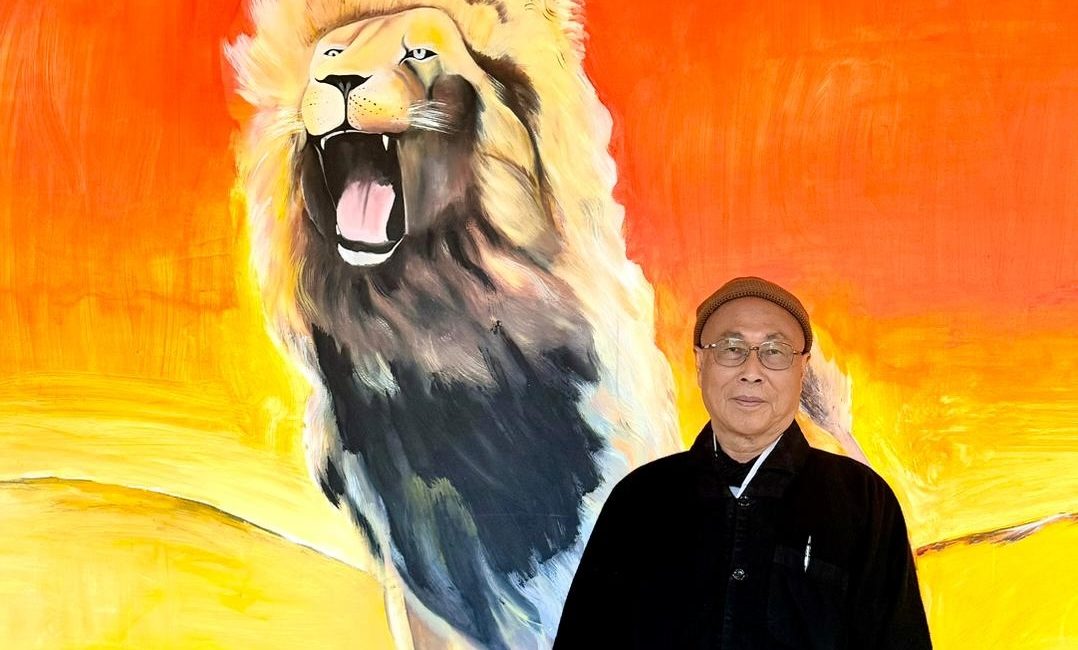After our stay in Lesotho, my Amitofo Care Centre (ACC) compatriots and I flew to Blantyre, the trading city of Malawi. Malawi is a small, landlocked country that served as the springboard for Ven. Hui Li’s Amitofo Care Centre initiative, which now spans six countries with seven branches across the continent. He is usually travelling the world, so it was a stroke of luck to cross paths with him at ACC Malawi this time (he was not in town last year when I was here).
Taiwanese-born Ven. Hui Li is not only one of the most accomplished monks of his time, pioneering the diffusion of Chinese Buddhism in several African nations. He is also a senior monastic, having first started his work in Africa under the Fo Guang Shan organization, one of Taiwan’s largest Buddhist groups. Nevertheless, he is modest while being driven, and allows his actions rather than titles to speak for themselves. In our conversation after dinner, he was open about his ideas and opinions on many different subjects, and most importantly, he remained laser-focused on reflecting about the long-term diffusion of Buddhism in Africa.
When the ACC team took his photo to celebrate him being with us, I suggested that it be in front of the beautiful lion painting in the campus’s dining hall and café. Ven. Hui Li himself spoke of Ashoka the Great, the Indian emperor who was remarkable for being the first figure in world history to spread Buddhism beyond its Indian borders. Ashoka’s reign left behind the earliest physical evidence of the Buddhist religion, including edicts from the converted emperor himself. He erected his famous lion capitals, which now form the modern state emblem of India. The Ashokan lions represent the Buddha. Since the earliest days of aniconic Buddhist art, Shakyamuni Buddha has been symbolized by the lion roaring in all four directions of the world. Ven. Hui Li is spreading the lion’s Dharma roar across Africa.

He is prepared that future generations will take up the work, especially since the foundation he has built is so solid. A 30-year project in the making, Ven. Hui Li embodies the Buddhist concept of patience and long-term preparedness. He founded ACC Malawi in 2004, and on Sunday night he was only in Blantyre briefly as a stopover to the Malawian capital of Lilongwe (he is building a new orphanage there). But it is in Madagascar where his Buddhist Dharma practice center, which will be non-sectarian, is going to be built.
This center represents the fruition of the past 20 years since the first ACC campus was built here in Malawi. It embodies the original objective of the master, which has always been to bring the Dharma to African communities and cultures, and give people a chance to make the Dharma their own, no matter what it might end up looking like. In fact, uncertainty and openness to the future will be a part of this generational project. But Ven. Hui Li’s centers are open to any Buddhist organization that hopes to share the vision of the Buddha in Africa: even a specific one, like Theravada, Mahayana, or Vajrayana. ACC has the infrastructure, including kitchens, dormitories, and space, for such activities. Ven. Hui Li’s ideas are therefore expansive, progressive, and very much needed for the future of Buddhism to flourish in the world.

The first Indian and Central Asian monks that traversed the steppes, deserts, and mountains of Eurasia had no idea what awaited them, or whether their mission would even be successful. They had no idea that their boldness would set the stage for Buddhism to be embedded in the spiritual, cultural, and philosophical foundations of the whole continent of Asia for millennia. Why shouldn’t the prospects of Buddhism in Africa be looked upon with optimism and hope?
Buddhism needs to be bold. That is the core lesson of Ven. Hui Li. At its most basic, that is the formula of success that has taken ACC so far. It is a lesson that needs to be relearnt, especially with the demographic decline of practicing Buddhists in Asia. This is the Dharma-ending age. What have we left to lose by being bold?
Related blog posts from BDG
Rhythm of Liberation: Insights from Pearl Wu, director of Amitofo Care Centre Lesotho
Rhythm of Liberation: Amitofo Care Centre’s Lesotho Campus
Making Buddhism African: A Generational Diffusion
Love, Hope, and Community: BUDDHISM IN MALAWI


